What adaptations have these worms developed to survive? Explain!

Mimicry; copying a more dangerous animal's appearance to seem threatening.
How is this a model of evolution?
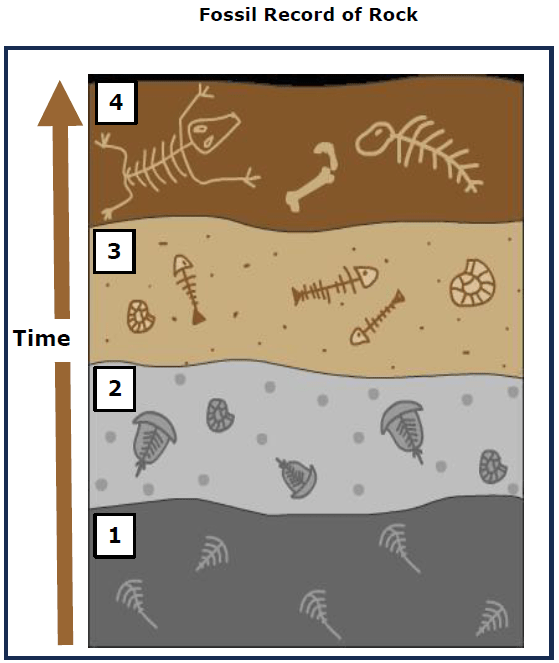
It shows organisms changing over time
What is this phylogenetic tree explaining?
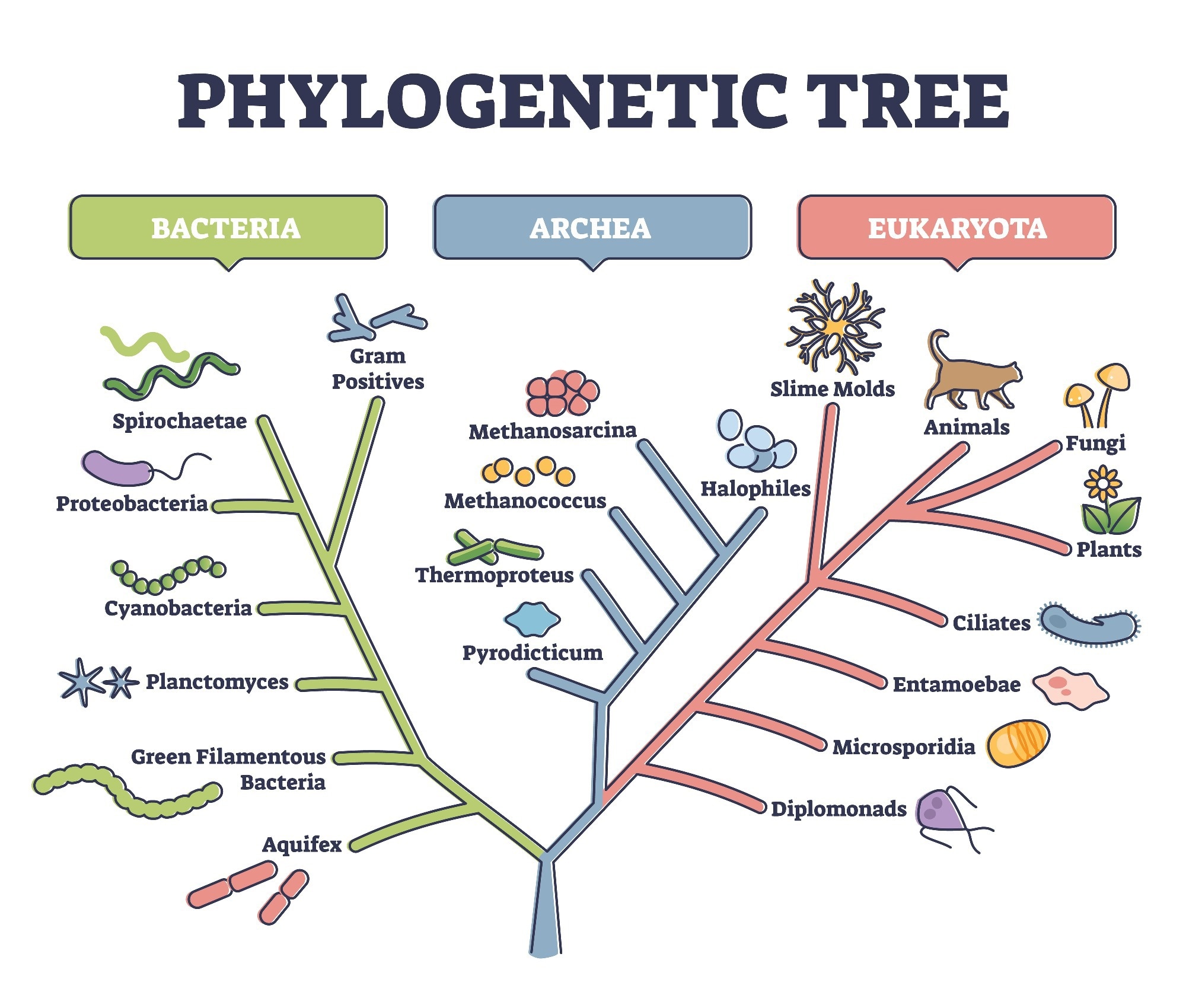
How organisms have evolved from a common ancestor.
Evolution Component #1: All living things have a ___________ ____________ (2 words).
Common Ancestor
"A process that causes species to change over time in response to environmental changes." This is the definition of...
Natural Selection
Monarch butterflies ______ from North America to Mexico in the fall, and back in the spring.
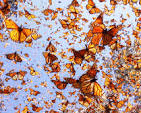
Migrate
What can you conclude from this document?
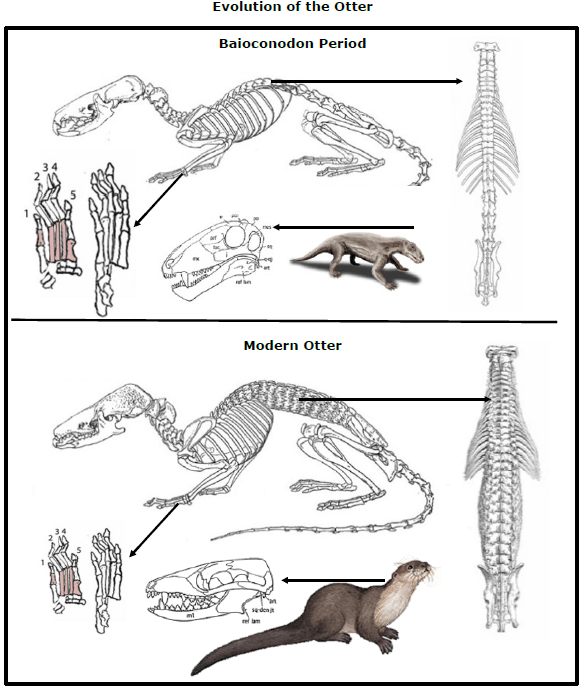
Modern otters have evolved from an earlier ancestor.
How can humans impact change in a population? (Minimum of 3 answers)
- Decreasing habitat availability (deforestation and urbanization)
- Climate Change through fossil fuel burning
- Overfishing / Agriculture
Evolution Component #2: Evolution happens over ______________ (think time).
Evolution happens over hundreds/thousands/millions of years
"The process by which humans use animal breeding and plant breeding to selectively develop particular phenotypic traits." This is the definition of...
Artificial Selection (Selective Breeding)
Male platypuses are ______ because they have hollow spurs on their hind legs that are connected to glands.
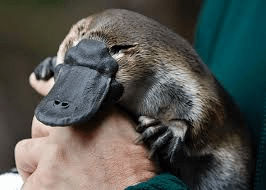
Venomous!
How is this document evidence of evolution?
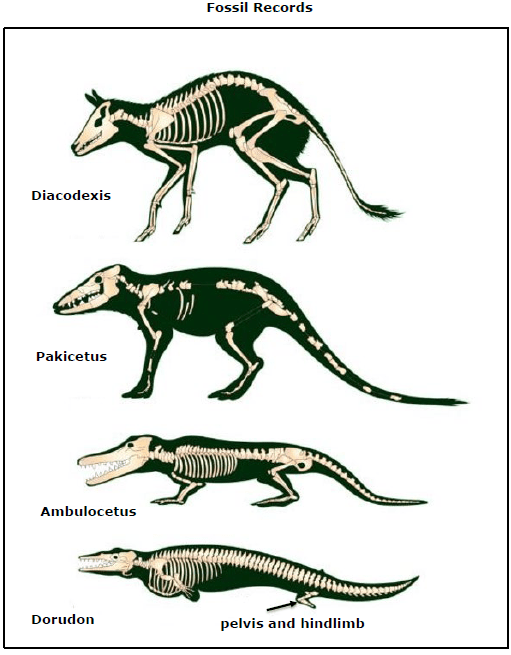
It shows the evolution of mammal species from previous species on Earth.
Species A = The penguins with the yellow markings
Species B = The Black and Grey penguins
What has happened over time and how do you know?
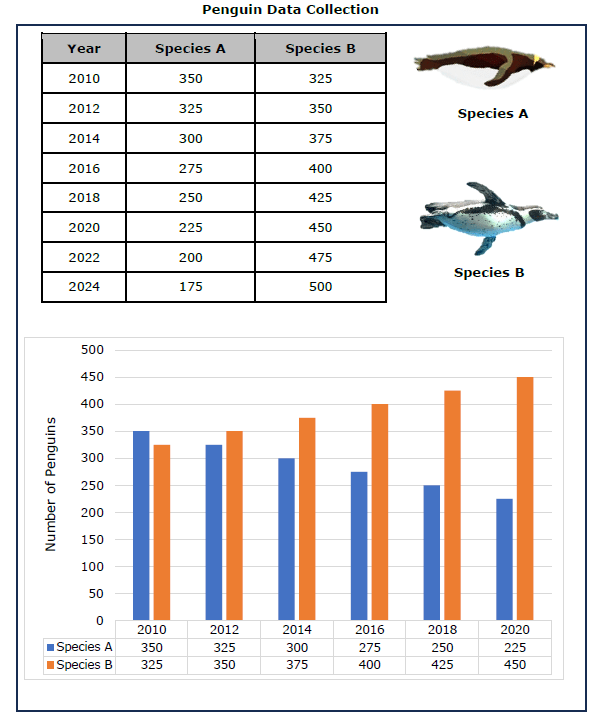
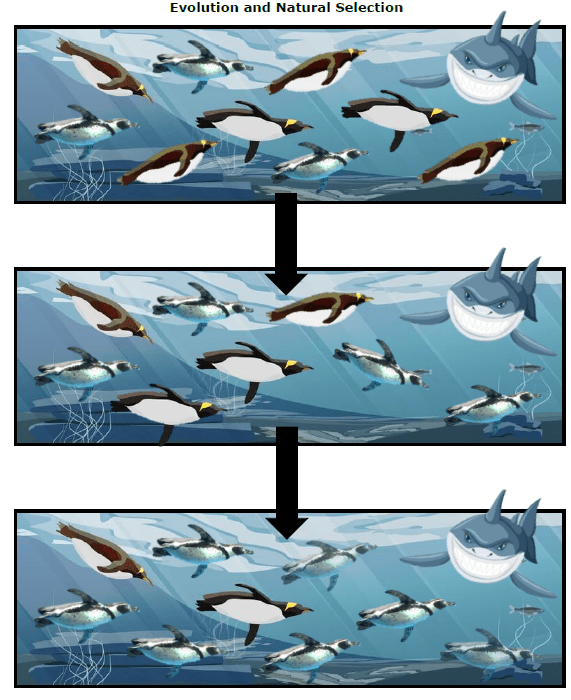
Species A's population has decreased over time while Species B's population has increased over time because Species B can camouflage better.
Evolution Component #3: Evolution is ________ based on variations from the environment
Evolution is RANDOM
How is the Pomeranian an example of artificial selection?
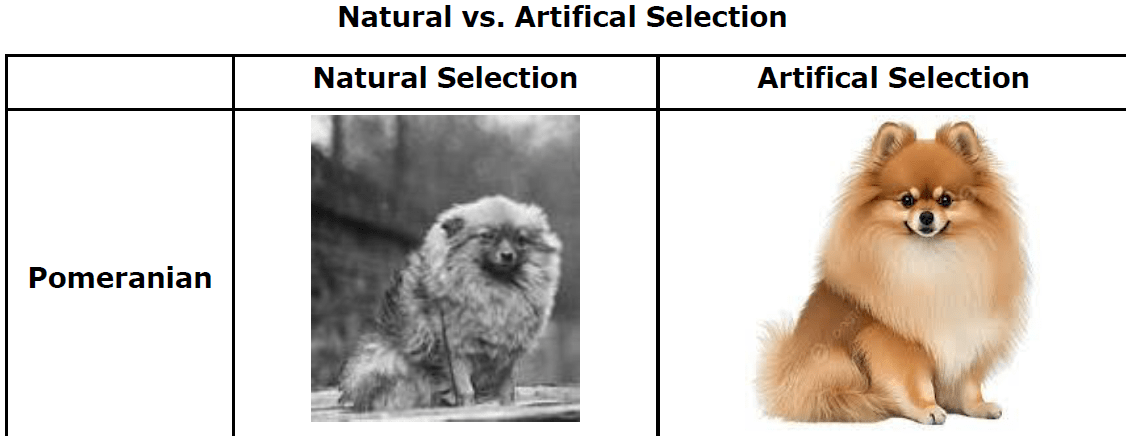
Humans have bred the Pomeranian to have softer, fluffier hair, a smaller body, and to be affectionate towards humans.
Plants have adapted this coating to keep water inside their leaves
Thick, Waxy Skin / Cuticle
What can you conclude from this document?
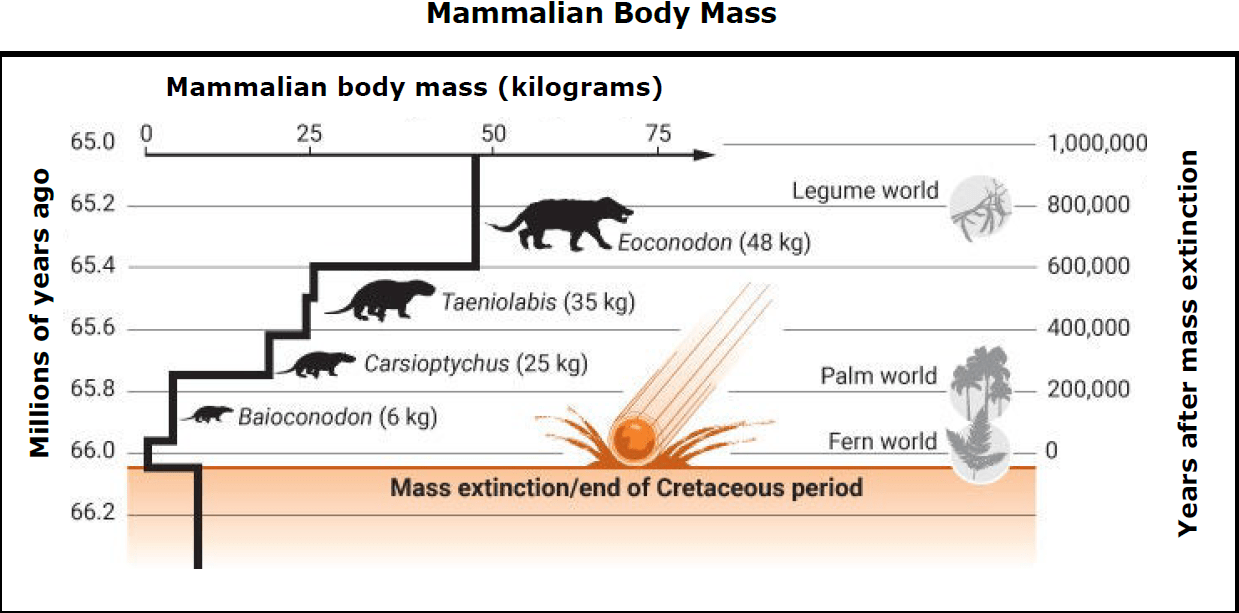
Mammals have gotten larger after the extinction of the dinosaurs!
What can you conclude from this document?

The white moth had a higher population before the during the Pre-Industrial Revolution because they were able to camouflage with the bark of the tree. During the Post-Industrial Revolution the black moth's population grew because they were able to camouflage with the bark.
Evolution Component #4: _________ ___________ (2 words) is a driving force / tool of evolution
Natural Selection is a driving force / tool of evolution
Why do problems occur from artificial selection? Use your knowledge of genetics to answer this question,
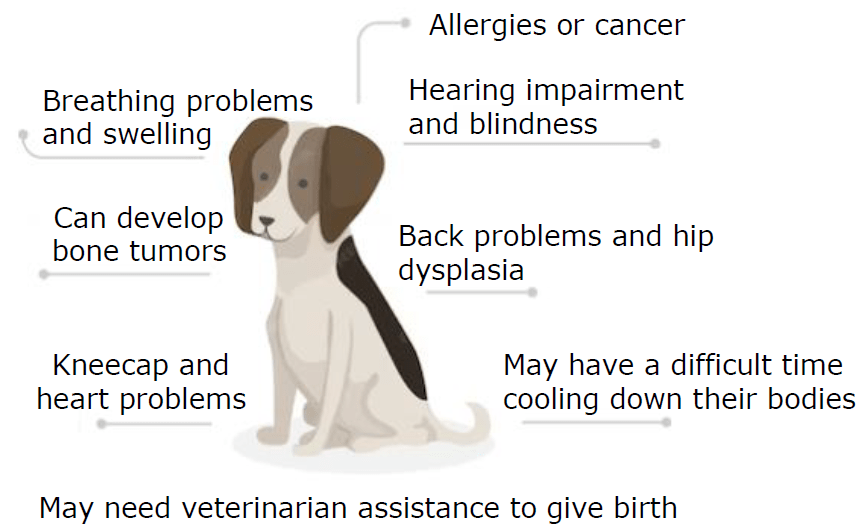
Creating purebred animals can increase health problems because the genes responsible for many genetic diseases are recessive, which increases the chance of passing on genes.
Seed Dispersal
How could you the changes in features within the fossil record of a horse provides evidence of evolution? (3 answers, one for the teeth, forefeet, and height. Connect it to an environmental factor)
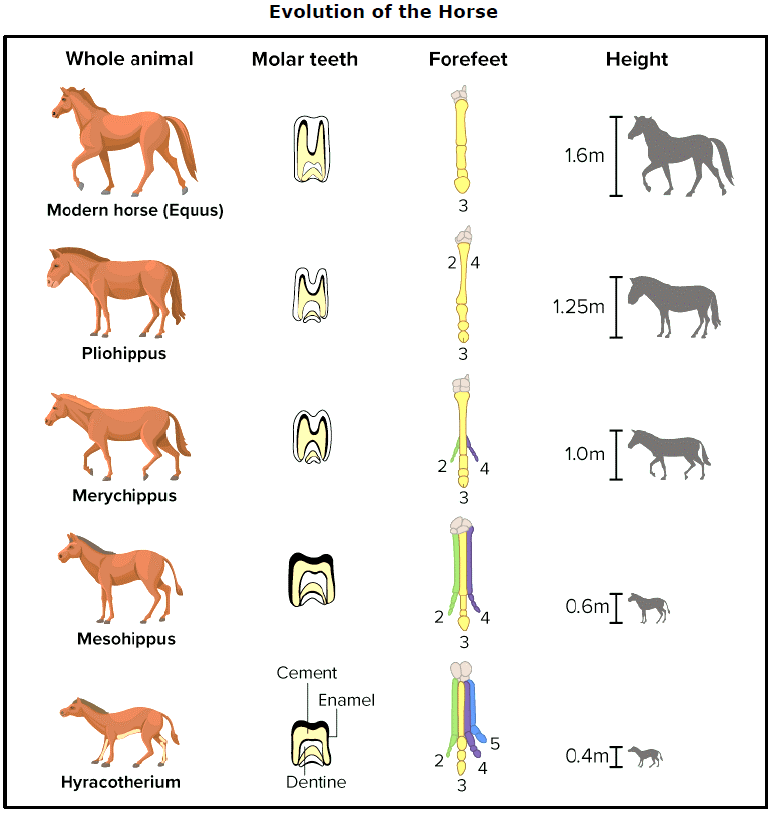
Horse teeth have changed over time to be larger because their food supply changed.
Horse forefeet have changed over time to adapt to roaming/migrating more.
Horses have gotten larger because they've had more food to eat which caused them to grow. Larger horses also don't get hunted as easily as smaller horses.
What are environmental factors that can happen typically without humans? (5 answers)
Food availability, Climate/Weather Patters, Water Access, Disease, and Predation.
1.Fossils
2.Comparative Anatomies (similar body parts)
3. Molecular Biology (having similar DNA)
4. Direct Observations (seeing changes in species).
What is the purpose of natural selection? What is the purpose of artificial selection:
Purpose of N.S.: To drive evolutionary change by allowing organisms with traits that better suit their environment to survive and reproduce more successfully.
Purpose of A.S.: To intentionally develop organisms with specific desirable traits by allowing only individuals possessing those traits to reproduce